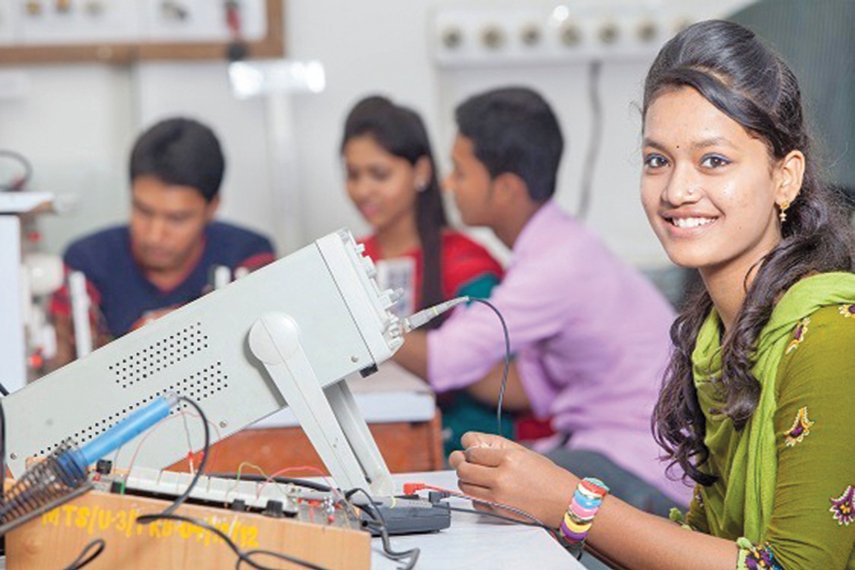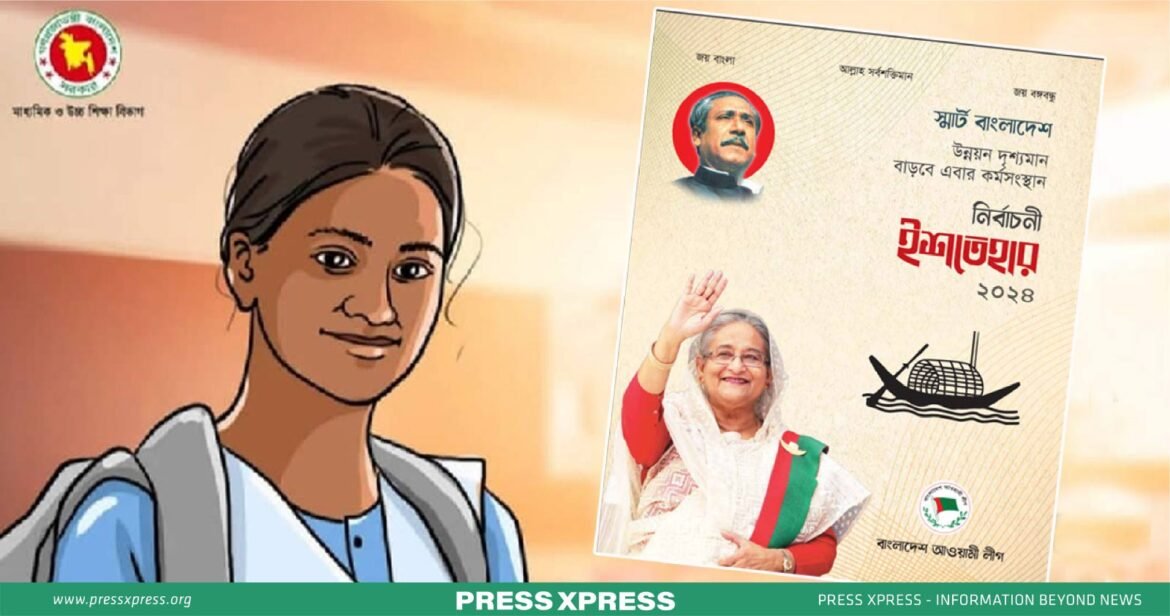‘Vocational Education and Training (VET) is a vital component of creating a diverse and robust workforce. It helps to develop essential skills that not only increase employability but also foster a skill-based economy. Recognizing the importance of this, the Awami League government has been a pioneer in promoting VET programs since 2010. The Awami League’s 2024 Election Manifesto reaffirmed its commitment to VET as one of its 11 special focus areas.
Importance of VET across the globe
A comprehensive report by the World Bank showed that VET has a positive impact on economic productivity in developing countries. Another study found that VET enhances social inclusion and contributes to economic growth. In some cases, VET graduates earn 8–10% more than those with only academic qualifications. VET was also expected to play a key role in achieving two Europe 2020 headline targets in the education field: (a) reducing the rate of early school leavers to <10%; and (b) increasing the share of 30–40-year-olds with tertiary or equivalent education to at least 40%. In OECD (Organisation for Economic Co-operation and Development) countries, about one in three 25–34-year-olds have a vocational qualification as their highest level.
VET can also help to address the skills mismatch and the skills gap that many countries face. The skills mismatch refers to the discrepancy between the skills that employers demand and the skills that workers supply. The skills gap refers to the shortage of workers with the required skills for the available jobs. VET can help to bridge these gaps by providing relevant and up-to-date training that meets the needs of the labor market and society.
Vet in Bangladesh
Technical and Vocational Education and Training (TVET) has become a popular term in the broad field of education. The government initiated the TVET reform project more than a decade ago, and since then, TVET has gained momentum and transformed significantly. The government enacted the National Education Policy 2010 with a strong emphasis on TVET. The following year (2011), the government issued a specific policy for TVET, known as the National Skills Development Policy 2011, which had a visionary and strategic road map for TVET development in the country. An apex body, the National Skills Development Council (later renamed as the National Skills Development Authority in 2018), was established in 2008 under the Prime Minister’s office to coordinate the whole TVET eco-system development in the country. Through the TVET reform project, we witnessed some historical initiatives to introduce and establish new approaches to skills development and quality assurance systems. Some of these were the Competency Based Training and Assessment system, the National Technical and Vocational Qualification Framework, the formation of Industry Skills Councils that introduced the Recognition of Prior Learning, etc.
State of Vet Education in Bangladesh (2021)
| Total Institutions | Teachers | Students |
| 2489 | 36745 | 762108 |
Bangladesh has experienced significant social and cultural changes in the past two decades. The youth of today face a different reality than the youth of the 1990s. The internet has provided free access to information that has changed the way we think and shaped our ideas. The way we use information has also changed dramatically. The world is more connected than ever.

Emphasizing the intrinsic value of practical skills, it is essential to recognize their worth irrespective of an individual’s familial or economic background. In Bangladesh, there is a growing call for young people to not only recognize but also aspire to become skilled practitioners who can play a pivotal role in propelling the nation’s economic engine forward.
The Awami League government has taken several measures to address these challenges and improve the VET system in the country. Some of these measures are:
- Increasing the budget allocation for VET and creating a separate ministry for technical and madrasah education in 2019.
- Establishing new institutions and expanding existing ones to increase the enrollment and capacity of VET. For example, the government has set up 100 technical schools and colleges, 40 polytechnic institutes, and 23 textile institutes across the country.
- Introducing new courses and curricula that are aligned with the National Skills Qualification Framework and the industry standards. For example, the government has introduced courses on information and communication technology, renewable energy, tourism and hospitality, and maritime technology.
- Enhancing the quality and accreditation of VET providers and trainers through regular monitoring and evaluation, and establishing a national skill testing and certification system.
- Promoting the public-private partnership and the involvement of the industry and civil society in the planning, delivery, and assessment of VET programs.
- Providing incentives and support to the learners and the graduates of VET, such as stipends, scholarships, loans, counseling, and job placement services.
- Raising the awareness and the image of VET among the public and the stakeholders, and encouraging the recognition and the mobility of VET qualifications within and outside the country.
In this pursuit, it becomes imperative to disseminate more information about skills training opportunities. Communities should actively promote and endorse the idea of young individuals engaging in professional vocations. The traditional mindset that university education is the sole gateway to workforce participation needs to be challenged. Instead, a broader perspective should prevail—one that acknowledges the diverse paths to becoming an active and contributing member of the workforce.
Encouragingly, the narrative suggests that vocational training is a valuable and viable alternative. All students, regardless of their academic inclinations, should be afforded the opportunity to explore and pursue their interests in various vocational fields. This paradigm shift not only diversifies the talent pool but also aligns with the evolving needs of a dynamic job market.
In essence, fostering a culture that appreciates and fosters practical skills as a credible and esteemed career path is crucial. By broadening the scope of opportunities beyond conventional university education, Bangladesh can harness the full potential of its youth, ensuring a skilled and adaptable workforce that drives sustainable economic growth.
The Awami League government believes that VET is a key driver of economic and social development and a powerful tool for poverty reduction and empowerment. The government is committed to making VET accessible, affordable, and attractive for all, and to ensuring that VET graduates have the skills and the confidence to succeed in the 21st century.


